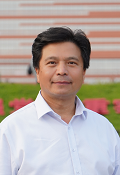Conflict of Interest
USP believes that in order to make the best decision on a manuscript submission, a journal’s Editor-in-Chief should be aware of any conflicts of interest that may exist for the authors.
A conflict of interest occurs when a professional judgment about a primary interest (such as patient welfare or the validity of research) may be influenced by secondary interests (such as financial gain or personal relationships). Conflicts of interest are not inherently unethical, but they should be recognized and publicly disclosed.
Examples of conflicts of interest include committee membership, consultancy, employment, expert demonstration funding (including pending), contract research, lectures or other educational activities, retained speakership, patents (including planned, pending, and issued), provision of equipment or other items, royalties, stock/options/other forms of ownership, other expenses not covered by the terms of the declared conflicts of interest (COIs), and other expenses that (may) arise impact on personal or professional relationships.
If there are no conflicts of interest, the author(s) also need to declare it, for example: “The author(s) declare no conflicts of interest.”
Before an article can be considered and accepted for publication, we must receive a declaration of conflict of interest from all authors.




.jpg)
.jpg)

